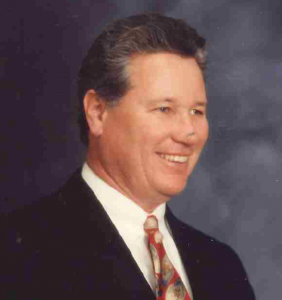Charles Laverty Believes New Technology Could Means Less Heart Surgery
Charles Laverty wants to give hope to those who could face invasive heart surgeries. New coronary stenting procedures could save healthcare systems worldwide.
LOS ANGELES, CA, UNITED STATES, May 23, 2018 /EINPresswire.com/ -- Advanced Bifurcation Systems has patented what they believe could be a ground-breaking dual catheter system that Charles Laverty, CEO, believes will modify the way heart patients are treated worldwide. All the medical progress that has been made over the last few decades has not changed the simple fact that many people still die from heart attacks every day. The system ABS is introducing provides a solution in a particularly problematic area of heart disease – bifurcation lesions.
In developed nations, the most common method for managing narrowed arteries that cause angina is to use stents. In most cases, this addresses the problem and helps to prevent heart attacks. The coronary stents market is anticipated to expand significantly within the next decade.
A burden on Healthcare systems
In the United States, heart disease is a leading cause of death, and stroke doesn’t follow far behind. This places a burden on the economy and costs the nation more every year due to an aging population. Virtually fifty percent of Americans run the risk of developing heart disease. The biggest purchaser of coronary stents is North America, but stents are also in much demand in Europe and China.
In underdeveloped countries, coronary stents are not widely used, mainly because they do not have the necessary infrastructure or trained specialists. Economic and political instability, as well as financial constraints and a lack of education, also contribute to the fact that they are not used as much as in developed countries.
A Percutaneous Coronary Intervention (PCI) is a non-surgical method used to widen a coronary artery. A balloon catheter dilates an artery from within, and the interventional cardiologist places a stent in the blood vessel that has been narrowed due to plaque buildup. Today’s stents are more advanced than those used in the past. Drug eluting stents, for example, are coated with drugs to decrease the chance of arteries narrowing again. Regardless of these improvements, heart disease still presents a major problem. Looking for less costly, more efficient procedures is essential.
Bifurcation lesions
A tricky problem that faces interventional cardiologists is treating bifurcation lesions. They are associated with higher procedural costs and less than satisfactory outcomes when compared with treatment for simple coronary lesions. Stents need to be situated in the main branch and a side branch. This often requires micro-adjustments, with overlapping and gaps often occurring.
Interventional cardiologist, Dr. Mehran Khorsandi, began experimenting on ways to prevent these complications twenty years ago. Now ABS has a dual catheter system that can deal with the most complex of bifurcation lesions in a simple manner and avoid the usual complications.
The benefits of a dual catheter system
Why the dual catheter system patented by ABS is so cutting edge is because stents can be placed in main and secondary branches of affected arteries at the same time. Micro-adjustments and battling to position stents is no longer a problem as self-alignment takes place.
What this means is that the procedure becomes far less complex and easily able to master, reducing risks for patients and allowing the procedure to be performed on an outpatient basis. This could have a significant effect on costs and results. It could also increase the possibility of such procedures being performed in underdeveloped countries.
Charles Laverty is excited about the prospects. Many patients could be saved from having to undergo risky open-heart surgery. Even complicated bifurcation lesions can be addressed with this system. He has been reaching out to people all over the world and already has partners on six continents to assist in spreading the news about this ingenious new technology.
ABS is currently conducting clinical trials and working toward receiving FDA approval. Approval could result in significant changes in the way heart disease is treated, benefiting patients, health care systems, and the economy.
About Advanced Bifurcation Systems
Advanced Bifurcation Systems works in the field of medical devices. It has patented a dual catheter system for treating bifurcation lesions that could revolutionize the way heart patients are treated. For more information about ABS and this new system, visit the website at
Charles Laverty
Advanced Bifurcation Systems
(949)432-4824
email us here
Legal Disclaimer:
EIN Presswire provides this news content "as is" without warranty of any kind. We do not accept any responsibility or liability for the accuracy, content, images, videos, licenses, completeness, legality, or reliability of the information contained in this article. If you have any complaints or copyright issues related to this article, kindly contact the author above.


